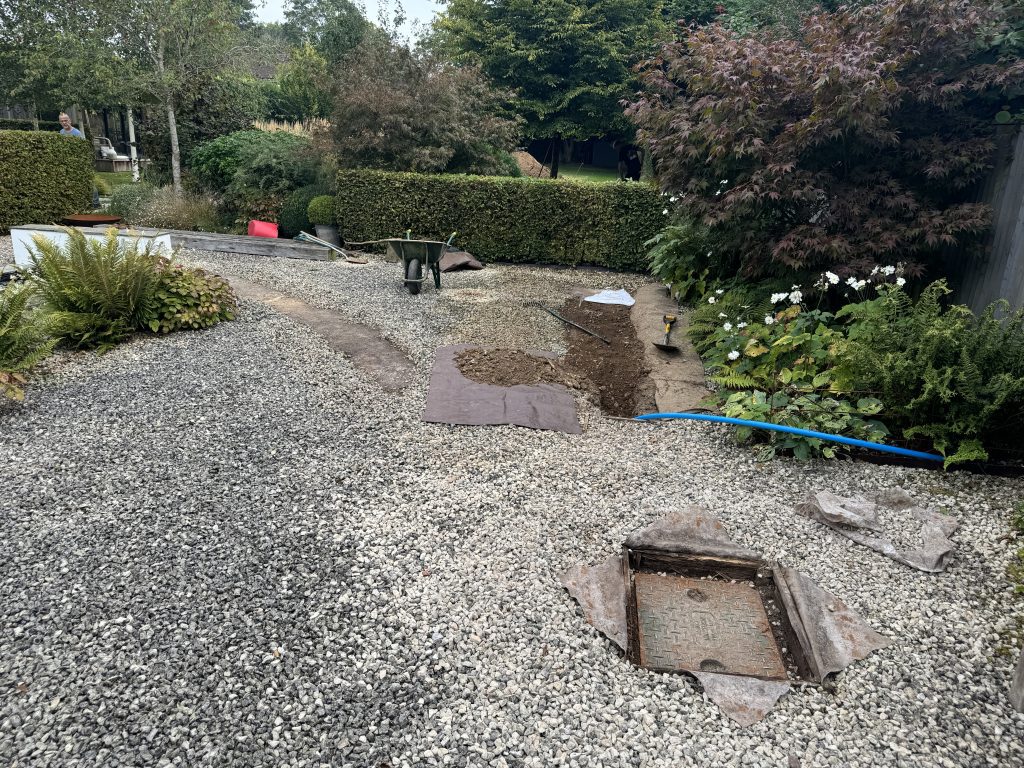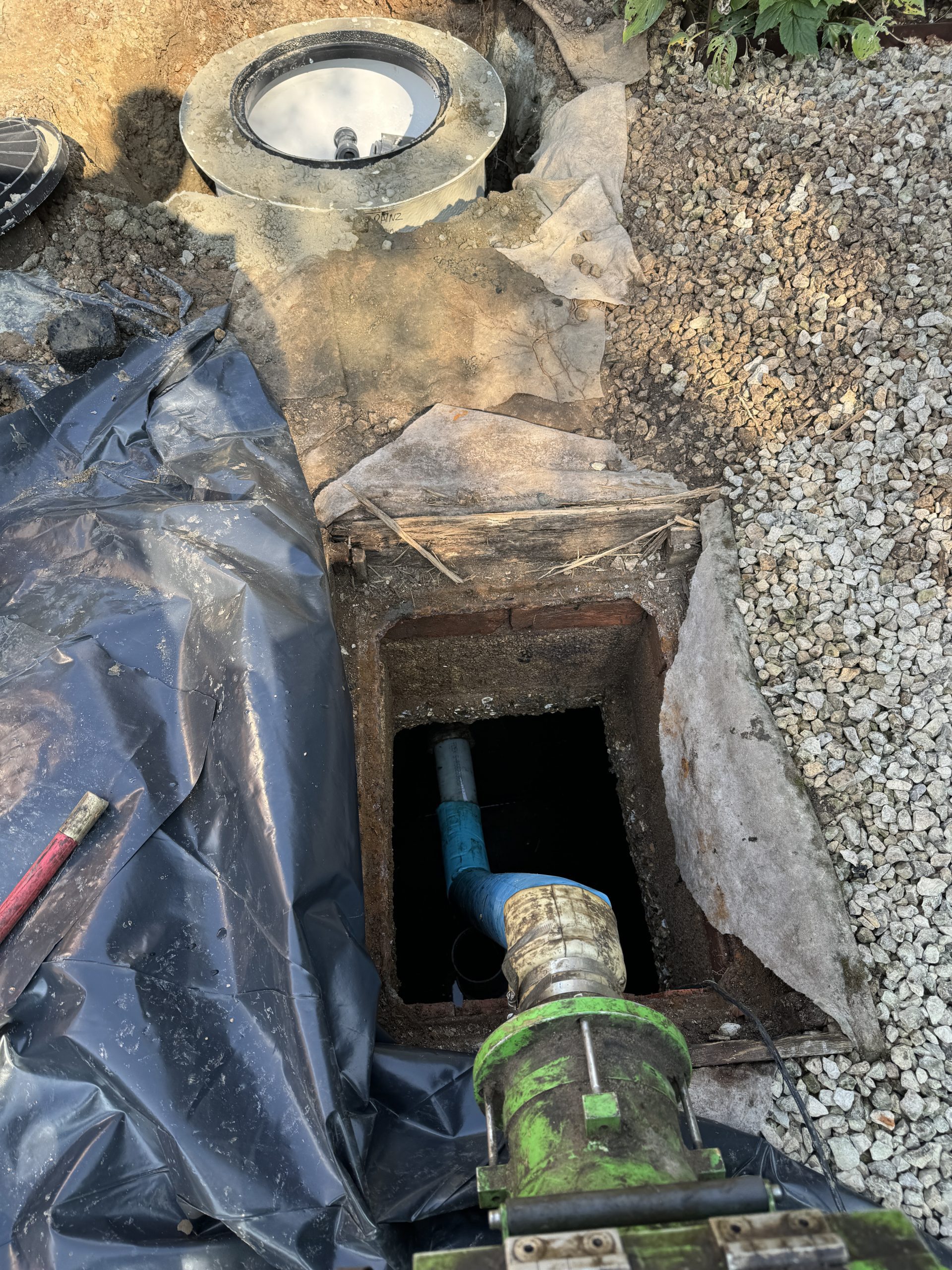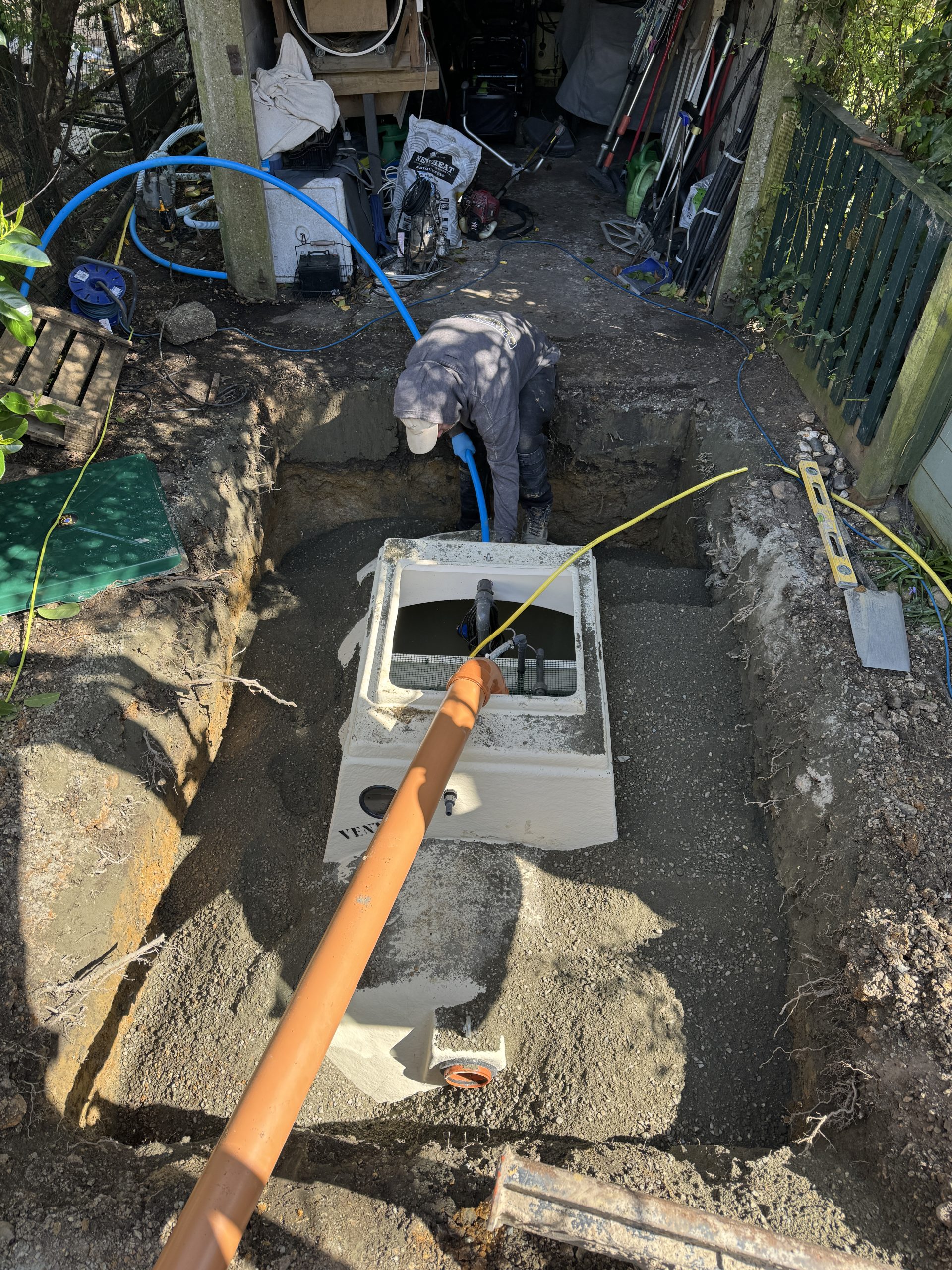
Percolation Test in Andover
– Smart Drainz –
Expert Percolation Testing for Drain Systems in Brockenhurst, Ringwood, Beaulieu, the New Forest & All Surrounding Locales
Understanding the importance of a professionally conducted percolation test is critical for any property owner planning drainage installations in Brockenhurst, Ringwood, Andover, Beaulieu, or the wider New Forest area. Whether designing a new septic system, planning a drainage field, or developing land for agricultural or construction use, this test ensures full compliance with drainage regulations and environmental protection laws. When performed by Smart Drainz’ expert technicians, a percolation test will assess the soil’s capacity to absorb water, ensuring long-term functionality and environmental safety for systems relying on sub-surface wastewater dispersal.
What is a Percolation Test?
A percolation test, commonly referred to as a “perc test,” is a field-based assessment that evaluates the infiltration rate of soil. This information is critical when designing septic tank drainage fields, infiltration basins, and other subsurface water dispersal systems. For any drainage installations involving foul water discharge being undertaken in or around Brockenhurst, Ringwood, Beaulieu, Andover or the New Forest, this test is a legal and engineering prerequisite.
A typical test involves:
- Excavation of at least two test holes, each 300mm x 300mm wide and at least 300mm deep, in the proposed drainage field area.
- Soil saturation, ensuring the hole mimics long-term wet weather conditions.
- Timed water infiltration measurement to calculate the percolation rate.
The test must be conducted when the groundwater table is neither seasonally high nor artificially low to yield reliable results.
Key factors that influence the test outcome include:
- Soil Type: Clay-heavy soils generally drain poorly, while sandy soils exhibit faster infiltration.
- Soil Structure & Texture: Root channels, granular cohesion, and particle sizes all affect drainage.
- Groundwater Depth: High water tables can restrict the effectiveness of a proposed drainage field.


When to Schedule a Percolation Test
Smart Drainz recommends carrying out a percolation test during the early stages of planning for any of the following:
- New drainage installations
- Septic tank or sewage treatment plant upgrades
- Planning application submissions requiring evidence of ground suitability
- Replacement of failing or non-compliant systems
Regulatory guidance stipulates that the drainage field must be:
- At least 10 metres from any watercourse
- A minimum of 15 metres from any building
- At least 50 metres away from any potable water supply
Early testing prevents costly redesigns and ensures that the proposed system meets Environment Agency standards for compliance.
How Smart Drainz Can Help
With a dedicated team of professional drain engineers at its disposal, Smart Drainz provides precise and efficient percolation tests across Ringwood, Brockenhurst, Ringwood, Andover, and the New Forest areas. We follow best practices and Environment Agency protocols to ensure tests are carried out accurately and legally.
Our service includes:
- Site assessment and test hole excavation
- Full soil saturation procedures for accurate data capture
- Precise infiltration rate calculations
- Design recommendations for drainage fields based on results
- Support with planning submissions and regulatory compliance
We integrate the results of the percolation test into the overall design of any drainage installation we’re due to carry out, ensuring that they meet technical and environmental standards. Our qualified drain engineers also advise on mitigation strategies if the soil shows poor percolation, such as raised mounds or tertiary filtration systems.
Percolation Test FAQ
Why do I need more than one test hole?
Two or more holes provide a representative sample of soil performance across the entire drainage field area. This ensures the system is designed using reliable data.
Can a percolation test fail?
Yes. Clay-heavy or waterlogged soils often fail. If this occurs, our drain engineers will advise on suitable alternative solutions, such as raised beds or specialist filtration units.
What if I skip the percolation test?
Omitting the test can result in a failed system, environmental harm, and non-compliance with planning and drainage regulations. It could also delay approval or lead to legal penalties.
Do you conduct tests in protected zones like the New Forest?
Absolutely. Our team has extensive experience working in regulated landscapes such as the New Forest, Beaulieu, Ringwood, Andover, Brockenhurst and surrounding locations. We always operate with environmental sensitivity and regulatory precision.
Contact Smart Drainz
Need a professional percolation test conducted in Brockenhurst, Ringwood, Andover, Beaulieu, or the New Forest? Whether you’re planning new drainage installations, upgrading a septic system, or verifying compliance with drainage regulations, Smart Drainz offers expert assessment and tailored solutions. Get in touch with our certified drain engineers on 03332 027129 to book your site survey today.
